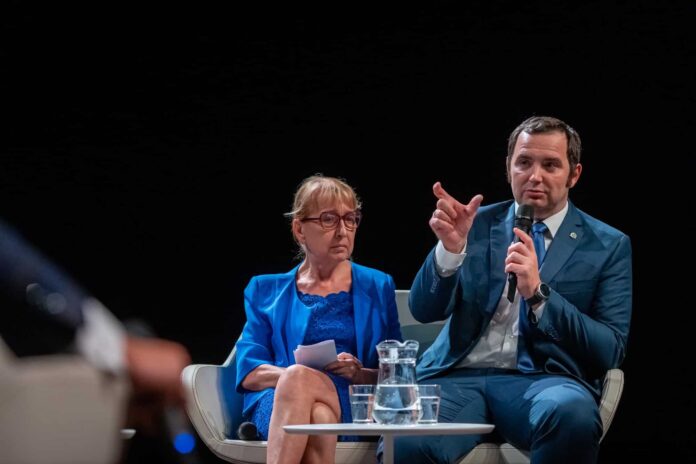“The problem has been correctly diagnosed: the image of hospital meals sometimes causes a grimace of embarrassment. Patients deserve nutritious, tasty and aesthetically served meals. However, we have doubts whether the financial amounts proposed by the National Health Fund (NFZ) will make Polish patients receive meals similar to those served in hospitals, for example, in Germany,” says Michał Bulsa, President of the Regional Medical Council in Szczecin.
On the websites of the National Health Fund, a Regulation of the Minister of Health has been published, describing a “pilot program” aimed at improving the quality of hospital meals. Experts have doubts whether the amount proposed by the Ministry of Health and NFZ to increase the gastronomical budget of hospitals will bring about the expected changes.
What new features does the “pilot program” known as “Good meal” foresee? The Regulation of the Minister of Health is quite detailed in terms of the energy value of meals. The entity implementing the tasks will have to care about the aesthetics of meals and publish their photos on their websites.
The conditions for organization and provision of services provided within the pilot program include providing a person planning a diet for no less than equivalent to 0.5 full time position. Other conditions are the publication of at least two meals from the most commonly used diets by the implementing entity on their website on weekdays, along with reference to the item on the menu.
The provision of health care services within the pilot program is settled based on a contract for the implementation of the pilot program, taking into account the rate of PLN 25.62 per person-day of a patient’s stay in the hospital.
Comment by the President of the Regional Medical Council in Szczecin, Michał Bulsa.
PLN 25.62 for a “person-day” stay in the hospital. So, we are to improve the quality of food for breakfast, lunch, afternoon snack, and dinner within this amount, and in addition, include at least a half-time dietitian who will develop and implement it in a specific hospital.
Of course, no one expected sushi to suddenly appear in the hospital, and a diet to be consulted by Magda Gessler, but the expectations were quite specific: meals would finally be prepared for more money, which would improve quality, taste, calorie value. There was hope that hospital meals would stop being associated with watery soup and a thin slice of deli for breakfast. The amount proposed by the National Health Fund under the pilot program does not guarantee visible changes. We are therefore afraid that it will not be possible to find dietitians who will be able to work effectively on the menu for patients for this money.
Regrettably, I state that the “Good meal” program, although correct in its assumptions, will remain only an election promise. The assumptions will not survive a collision with reality. No one expects elaborate cuisine from a hospital, but when announcing such a program, especially after 8 years of rule, you must show respect for patients.”


















